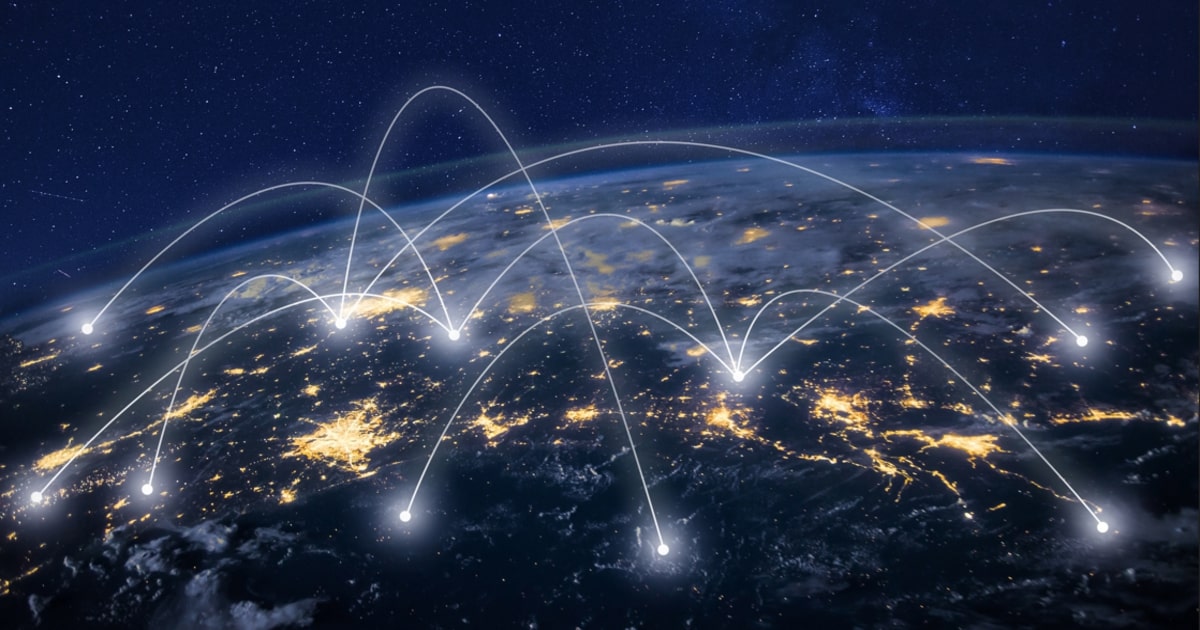The Fragmentation of Nations? Our Stage-Setter for 2024
Is the world moving into an age of economic stagnation and price inflation?
January 2, 2024

A Strategic Intervention Paper (SIP) from the Global Ideas Center
You may quote from this text, provided you mention the name of the author and reference it as a new Strategic Intervention Paper (SIP) published by the Global Ideas Center in Berlin on The Globalist.
The global economy and its system of complex and multidimensional layers of interconnectedness and supply chains is a robust yet fragile network.
It is robust because it is highly efficient and resistant to idiosyncratic shocks during normal times, but it is very vulnerable when unforeseen and, in part, unforeseeable disruption occurs.
More importantly, the global economic system is almost unprotected and “unproctectable” against a confluence of such shocks potentially leading to its collapse.
Why didn’t we see the writing on the wall?
Why is that? And why are we just realizing that now? Well, the world economy really started fully opening up in the 1980s. By 2020, a deeply interconnected global trading system had been developed. It came about gradually at a time of global peace – as well as growing consensus that a rising tide lifts all boats.
While advanced countries benefited from rock-bottom consumer prices which quelled the thirst for cheap “toys” of their relatively affluent people, advancing countries reached new heights as they were included in the global trading community.
Yes, there were financial crises – even disruptive ones – between 1980 and 2020. But even the arguably worst of them in 2008/2009 was overcome through coordinated global actions – even though at great costs.
Yes, there were local or regional wars and other crises of global security. But again, all were kept from impacting the global trading system. There was simply an implicit global understanding that it was in everybody’s interest to protect globalization and interconnectedness.
Enter COVID 19
All of this changed in 2020 with the outbreak of the global pandemic. This was really an unprecedented event – with economic consequences far beyond those of the Spanish Flu a hundred years earlier. The reason for that is simple: The world economy was far less connected and interdependent then.
Thus, with the rise of the global pandemic, supply chains collapsed, as whole countries shut down economic activity. Shortages from microchips to food to minerals emerged. Production came to a halt in supplying countries – as well as countries that finalized and distributed production.
The effects were sharp price increases across the board – especially because demand did not collapse at the same clip because central banks (correctly) injected large amounts of money. These shortages of goods and their accompanying price increases reverberate through the global economy to this very day.
Over-reliance on China
More importantly, the pandemic was the first chip in the world’s overall confidence in the value of global supply chains. Questions were raised whether ultimately more regional supply chains should replace the world’s massive reliance on China’s production of sheer everything.
This also played into the hands of nationalist voices in advanced democracies. Until then, they had been marginalized with their views that complete – and, to be sure, unachievable – self-reliance in advanced countries was the holy grail.
This created a dangerous and volatile mix of reasonable concern about the stability of global supply chains during systemic shocks with extremist and often xenophobic rhetoric.
It poisoned the objective result of careful and well-intentioned analysis. This sometimes implicitly equated reasonable worries and nationalist paranoia, lifting the latter from the intolerable margin to the acceptable center.
The Ukraine war
Add Russia’s invasion of Ukraine in February 2022 and the war that followed. This is arguably the largest threat to global security on European soil since the end of World War II. Its global implications on economic supply chains and their perceived sustainability was far greater than the combined size of the Russian and Ukrainian economies would suggest.
The collapse of Ukraine’s agriculture – which had been the breadbasket of parts of Europe and large parts of Africa – was a huge blow. Justified global sanctions against Russia upended the oil and gas industry, creating fear of blackouts and brownouts in parts of Western Europe.
Russia’s control over a large portion of rare earth materials doubled that fear, with concerns about running the world’s IT infrastructure which depends on access to these materials.
This, and the accompanying price surges, cast an additional shadow over the world’s global trading system.
Like-minded autocrats
Confusing coalitions of like-minded autocrats evolved – Turkey/Russia, India/China, India/China/Russia and Hungary/Russia.
This was relevant for the members of Western democracies because it further undermined their trust in the global trading system – and the world order in general. After all, Turkey is a member of NATO and Hungary is a member of NATO and the EU.
Putin has no concerns about the welfare of his own people – let alone that of other nations. His threatening posture literally brought the world trading community to its knees, even though Russia is an irrelevant economic player in dollar terms.
It is a systemic threat because of the nature of its exports. What is more, its menacing stance raises deep doubts about the world trade system, far beyond Russia’s and Ukraine’s borders.
The Gaza war
Add Hamas’ brutal, murderous attack on unsuspecting Israelis on October 7, 2023 and the war that resulted from it. Sides had to be taken. The West stood with Israel.
New confusing alliances evolved as the murderous Arab regimes of Saudi Arabia and others wanted to protect their accrued personal wealth by uniquely siding with the West and Israel.
More importantly, within Western democracies, a gulf between pro-Israel and pro-Palestinian forces emerged. Some of it was based on peace-seeking intentions, some on the concept of false equivalence infused with a dose of pure anti-Semitism.
But once more, this drove a wedge between Western democracies, which overall once had been guided by an overarching sense of common values.
Don’t forget the Houthis
Add the Houthi attacks on maritime trade passageways to Europe of recent weeks. That threat, master-minded by Iran, is enormous – although militarily manageable presuming a global alliance took on the threat.
But confidence in the most basic elements of international coordination has by now collapsed. That leaves the burden, once again, on the United States. However, it is itself an exhausted and divided power with little breath to spare.
The climate crisis
Add to that the climate crisis. Increasing droughts and floods are destroying crops around the world – leading to huge inflationary pressures/uncertainties on various foodstuffs.
Add to that the actions by national policymakers in some countries to address these threats to the planet’s future. As with many good things, there are unintended consequences or maybe known side-effects to these actions.
At least in the medium term, costs for producers and consumers will rise to give the planet a chance for survival.
But this is politically even more divisive because not all advanced countries are willing to make sacrifices that allow for the containment of environmental damage.
That, in turn, increases material political consequences in those countries that do – leading to more space for political extremists/nihilists who see a chance to advance among all the pent-up fear of their people.
Conclusion
All of the above leads to upwards pushing inflation. Global supply chains seem unsustainable, global security seems unattainable, domestic consensus in democratic societies is eroding quickly and the planet is at risk of collapsing.
All policy choices are complicated, and none have unanimous or even majority support. More importantly, the massive confluence of all of these systemic shocks have made international coordination on a grand scale nearly impossible.
As a result, the world’s economy, its trading system and its reliance on mutually beneficial accords no longer really exists in any tangible sense.
Globalization is dead. Worse, even regional trading regimes are getting discredited and are less likely to serve as replacements.
Finally, national unity in the world’s democracies is in question. All of this leads to a more and more fragmented and insulated league of (un)nations, limited economic capacity and a period of long and sustained inflation risk.
Takeaways
The global economy and its system of complex and multidimensional layers of interconnectedness and supply chains is a robust yet fragile network.
At the same time, the global economic system is almost unprotected and “unproctectable” against a confluence of such shocks potentially leading to its collapse.
We are experiencing a dangerous and volatile mix of reasonable concern about the stability of global supply chains during systemic shocks with extremist and often xenophobic rhetoric.
Confidence in the most basic elements of international coordination has by now collapsed. That leaves the burden, once again, on the US. However, it is itself an exhausted and divided power with little breath to spare.
The massive confluence of all of these systemic shocks have made international coordination on a grand scale nearly impossible.
A Strategic Intervention Paper (SIP) from the Global Ideas Center
You may quote from this text, provided you mention the name of the author and reference it as a new Strategic Intervention Paper (SIP) published by the Global Ideas Center in Berlin on The Globalist.


